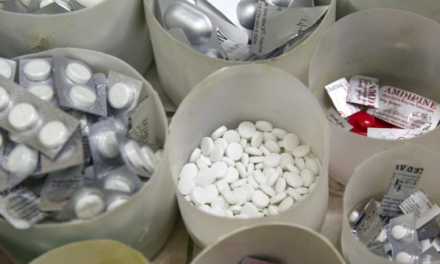A groundbreaking study led by researchers at Pohang University of Science and Technology (POSTECH) and Dong-A University Hospital has unveiled a novel solution for treating retinal detachment using a remarkable hydrogel derived from algae. Published in the esteemed journal Biomaterials, the research marks a significant milestone in the quest to address vision-threatening conditions with innovative medical interventions.
Retinal detachment, a severe eye condition characterized by the separation of the retina from the inner wall of the eye, poses a grave risk of vision loss and blindness if left untreated. Traditional treatment methods often involve the removal of the vitreous body, the gel-like substance that fills the space between the lens and retina, and its replacement with intraocular fillers. However, these fillers can be associated with adverse effects, prompting researchers to seek safer and more effective alternatives.
Led by Professor Hyung Joon Cha from POSTECH and Professor Woo Jin Jeong from Dong-A University Hospital, the interdisciplinary research team leveraged the unique properties of alginate, a natural carbohydrate derived from algae, to develop an artificial vitreous body. Alginate’s remarkable viscoelasticity and biocompatibility make it an ideal candidate for vitreous replacement, offering promising outcomes for patients undergoing retinal detachment surgery.
“Our team’s innovative hydrogel, based on modified alginate, represents a significant advancement in the field of ophthalmology,” stated Professor Hyung Joon Cha. “By closely mimicking the properties of the natural vitreous body, our hydrogel provides a safer and more effective solution for preserving vision and preventing the recurrence of retinal detachment.”
The research team conducted rigorous experiments using animal models, including rabbit eyes, to validate the hydrogel’s stability, biocompatibility, and efficacy in preventing retinal detachment. Encouragingly, the hydrogel demonstrated remarkable performance, maintaining retinal stability over an extended period and outperforming conventional intraocular fillers.
“Retinal detachment poses a growing threat to vision, particularly among young individuals with severe myopia,” explained Professor Woo Jin Jeong. “Our hydrogel offers a promising alternative to existing treatments, with the potential to revolutionize vitreoretinal surgeries and improve outcomes for patients worldwide.”
Supported by the Korea Medical Device Development Fund and the National Research Foundation of Korea, the research underscores a collaborative effort to advance medical innovation and address unmet needs in eye care. With ongoing research and development efforts, the research team is poised to further refine the hydrogel technology and accelerate its translation into clinical practice, offering hope to millions of patients suffering from retinal detachment and other vision-threatening conditions.











